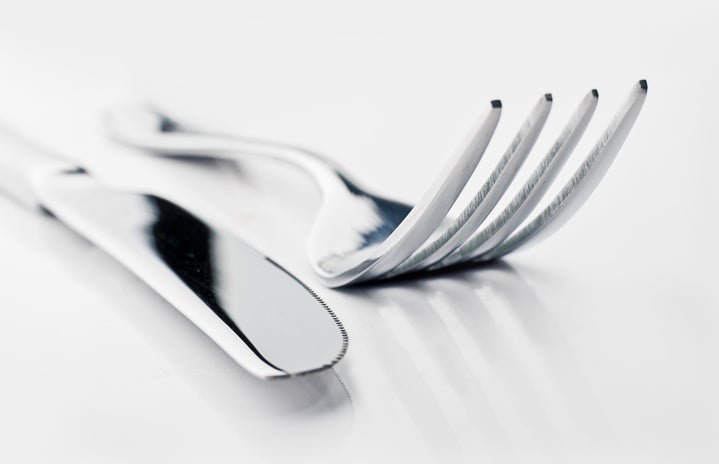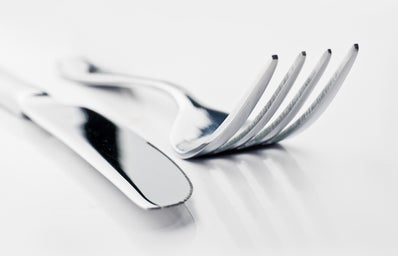Maybe it’s one of those days where the meal consists of eggs, bacon and toast. Or maybe you’re running late and you could only grab a half of a bagel with cream cheese. Or, maybe you didn’t have time to eat anything at all. One thing is for sure – breakfast is the most ambivalent meal in college life. Some prefer to skip breakfast all together, while some just grab something small as they walk out the door – is there really anything wrong with that? We’re putting “the most important meal of the day” under the microscope, discovering what it means in the context of a busy college schedule.
Breakfast 101
We’re all told that breakfast is a crucial part of a productive day. There are many benefits gained from eating breakfast daily, such as providing your body with the first chance to refuel after hours of “fasting,” and aiding in weight management. Breakfast boosts essential glucose levels in your body after sleeping for hours, allowing your brain and body to function better. According to Syracuse University Nutrition Science and Dietetics professor Sarah Short, “scientific research indicates that if you don’t eat breakfast, by 10 a.m. your mental and physical abilities go way down.” Breakfast aids weight management by keeping your metabolism running at a healthy level. If the body is not sufficiently energized from food, metabolism slows down to conserve energy – this is where breakfast comes in to save the day.
As far as academic improvement is concerned, studies have shown that eating breakfast can have positive effects on students’ focus and cognitive function. However, the absence of breakfast has not been directly proven to lead to bad grades. A big factor contributing to the effects of breakfast is your age. “There are definitely studies showing that school-age children have improved cognitive function (i.e., think and learn better) when they eat breakfast,” explains Monica Reinagel, host of the Quick and Dirty Tips podcast “Nutrition Diva.” “The evidence for the improved cognitive function with young adults is not as dramatic.”
However, a study conducted by Gregory W. Phillips, professor in the Division of Natural Sciences of Blinn College in Brenham, Texas, could show the breakfast-benefits trend extending into college-age students. The study observed over 1,200 college students over the course of 11 years to see if eating breakfast had an effect on the grades of General Biology exams. It was determined that “during the course of the study 188 students made an ‘A’ on the second exam, this includes 17.7% of the students who had eaten breakfast and 9.7% of those who had not eaten breakfast. Similarly… 38.2% of the students eating breakfast received a ‘B;’ whereas, only 18.7% of the students not eating breakfast received a ‘B.’”
So is there a clear verdict? Is breakfast really the most important meal of the day? Research shows the many positive effects breakfast can have for students in and out of class; however, skipping breakfast isn’t out of the question. Most experts will enforce the breakfast rule, but if you understand your body and how you can function throughout the day on your own eating patterns, skipping breakfast is not the worst thing you can do. What is important is knowing the side effects skipping breakfast has on your body specifically, and the side effects of eating a balanced breakfast as well.
This is Your Breakfast
Breakfast comes in many forms in the lives of college students. Associate Professor of Nutrition Sciences and Dietetics at Syracuse University Tanya Horacek gives collegiettes™ some insight into the best and worst breakfast scenarios:
“My breakfast is usually just a cup of coffee or a coffee drink.”
This kind of breakfast may get you going with caffeine, but isn’t doing much else for your body. “Depending upon how the drink is dressed, as in with cream or sugar, it might just be providing a source of caffeine and a few calories,” explains Horacek, “but isn’t really providing any beneficial proteins, vitamins or minerals.”
“If I do eat something, it’s something small – like a granola bar or PopTarts.”
While eating something is always better than eating nothing at all, some breakfasts provide calories without much nutrition. “The choices of what one can eat fall along a continuum of how nutrient dense it might be, and how it might contribute to the overall quality of a person’s diet,” says Horacek. A small snack of PopTarts may soothe your stomach, but when it comes to nutrition, they are not doing anything for your body.
“I never eat breakfast. My first meal is usually later in the day.”
According to Horacek, some people simply cannot eat when they first wake up. This is perfectly fine, as long as this doesn’t disrupt regular eating patterns throughout the rest of the day. “You just want to avoid the situation of being awake for 5-7 hours before eating,” she says. “If someone gets too hungry because they skipped breakfast or any meal, they might overeat at the next meal because they were too hungry.” Avoid this pitfall by eating small portions consistently during the day, and always choosing nutrient-dense meals packed with proteins, fiber and other essentials.
[pagebreak]
Quick and Easy Breakfasts
“Nutrition Diva” Reinagel explains that choosing the right breakfast is crucial for setting the tone of the day. “Eating the right foods at breakfast can really set you to have more energy and concentration throughout the day,” she explains. “It can also help you make healthier food choices throughout the day.”
Reinagel describes her breakfast “Rule of Five” – “Look for cereals that have at least 5 grams of fiber but not much more than 5 grams of sugar per serving.” She also suggests including a form of protein in your breakfast. So how do busy collegiettes™create balanced meals with little time and a small budget? Here are some simple breakfast recipes you can try in your dorm or apartment.
“Rule of Five” Breakfasts
Apples ‘N Oats
Ingredients:
low sugar – Quaker Oats Low-Sugar Instant Oatmeal
high fiber – apple
protein – nut butter
Preparations:
- Prepare oatmeal as instructed on package. TIP: Sprinkle some cinnamon or raisins into the oatmeal to spice it up!
- Cut apple into slices and spread a serving (about 2 tablespoons) of your favorite nut butter on the slices. Enjoy apples n’ oats together!
Veggie Frittata with Yogurt
Ingredients:
low sugar – plain Greek yogurt
high fiber – assorted, ready-to-eat veggies (carrots, corn, peas, peppers, onions, etc.)
protein – eggs
Preparations:
- Spray skillet with nonstick cooking spray.
- Beat eggs (I like to use one full egg and one egg white, but you can use two full eggs) in a bowl and mix in assorted veggies.
- Pour egg mixture into prepared skillet. Let cook until bottom of frittata is brown. Flip frittata to cook other side. Wiggle the skillet every once in a while to make sure the frittata doesn’t stick to the bottom of the skillet.
- Remove when ready and eat with Greek yogurt on the side.
Smooth-ie Breakfast Shake
Ingredients:
low sugar – assorted berries (blueberries, raspberries, etc.)
high fiber – banana
protein – milk
Preparations:
- Measure one cup of low-fat or fat-free milk and pour into a blender.
- Slice one medium banana into small pieces. Put into blender with assorted berries.
- Blend on high for about 30 seconds to a minute. Adjust the time depending on how thick or thin you like your smoothies.
- Pour smoothie into a glass and enjoy!
Grab-and-Go Breakfasts
- Granola Bars– Choose granola bars that echo the “Rule of Five” – low sugar and high fiber. Also notice the calorie ration; since you are replacing a meal, the bar should be between 200-300 calories. Some good choices include Nature Valley Crunchy Granola Bars, Kashi GOLEAN Bars and Luna Bars.
- Yogurt Parfaits– Pick parfaits with low-fat or fat-free yogurt, which provide calcium and probiotics, and stay away from parfaits sweetened with added sugar. You can always make your own parfait too! Just pick your favorite yogurt, mix with fruit and enjoy! Great yogurts for parfaits include Fage Total 0% Plain Greek Yogurt, Dannon All Natural Nonfat Plain Yogurt and Stonyfield Farm Fat Free French Vanilla Yogurt.
- Fruit Cups– Always go for fresh fruit cups rather than prepackaged ones that often preserve the fruit in syrup or sugar-water. Applesauce is another “fruit cup” choice, just be sure to grab the unsweetened cups and spice it up with berries or cinnamon.
Sources
Associated Content
Belly Bytes
Suite101
CBS News
Sarah Short, Professor of Nutrition Sciences and Dietetics at Syracuse University
Monica Reinagel, host of “Nutrition Diva” podcast
nutrition@quickanddirtytips.com
Tanya Horacek, Associate Professor of Nutrition Sciences and Dietetics at Syracuse University

